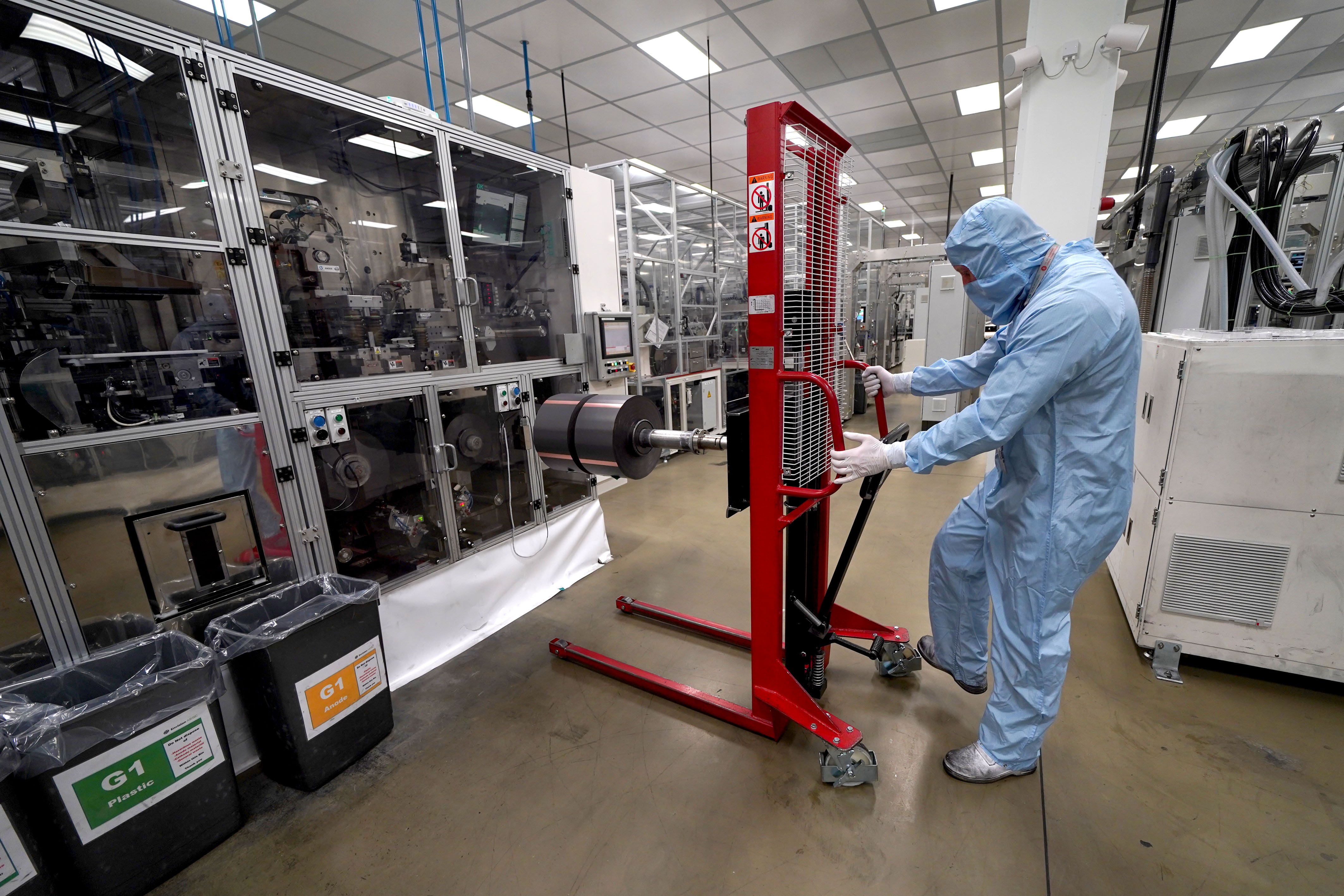Supply chain wait times ease for first time since 2019, new survey suggests
Data shows the UK remained in negative territory, but the speed of that decline has recovered since hitting a 31-month low in December.

Your support helps us to tell the story
From reproductive rights to climate change to Big Tech, The Independent is on the ground when the story is developing. Whether it's investigating the financials of Elon Musk's pro-Trump PAC or producing our latest documentary, 'The A Word', which shines a light on the American women fighting for reproductive rights, we know how important it is to parse out the facts from the messaging.
At such a critical moment in US history, we need reporters on the ground. Your donation allows us to keep sending journalists to speak to both sides of the story.
The Independent is trusted by Americans across the entire political spectrum. And unlike many other quality news outlets, we choose not to lock Americans out of our reporting and analysis with paywalls. We believe quality journalism should be available to everyone, paid for by those who can afford it.
Your support makes all the difference.The supply chain problems that have been plaguing UK manufacturers for years have finally started easing, a new survey has shown, as the sector started to slow its decline.
According to the closely-followed Manufacturing PMI score, the UK remained in negative territory, but the speed of that decline has recovered since hitting a 31-month low in December.
The survey, compiled by S&P Global and CIPS, scored 49.3 in February, up from 47 in January and 45.3 in December. Analysts had expected the score to be slightly lower.
Anything below 50 on the index means that the sector is contracting.
The data showed that “vendor lead times” – the time it takes between ordering and your supplier being ready to ship – had shortened last month for the first time since June 2019.
This filtered through to prices, meaning that the rate at which prices increase on goods and materials that manufacturers buy has eased.
“Input prices increased at the slowest pace since July 2020 and supplier performance improved for the first time in three-and-a-half years,” said Rob Dobson, director at S&P Global Market Intelligence.
“This offset some of the ongoing negative impacts from strikes, the cost-of-living crisis and lower order intakes.”
He added: “Manufacturers benefited from growing signs of a global economic recovery and the easing of Covid restrictions by China.
“This process of economic revival, alongside signs of inflation peaking and reduced recession fears, should hopefully help UK manufacturers eke out further growth in the coming months.”
Dr John Glen, chief economist at the Chartered Institute of Procurement & Supply, said: “Driven by improvements in supply chain deliveries and more stable price rises, the manufacturing sector reported a more upbeat assessment of the state of play for makers in February and output rose for the first time in eight months.”